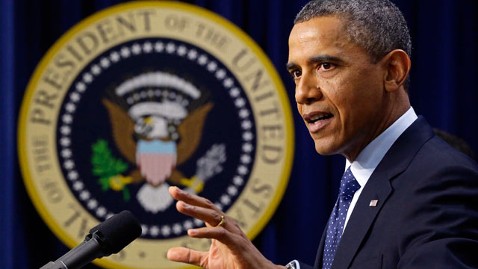STORY HIGHLIGHTS
- The vote prevents tax increases for more than 98% of Americans
- It also wards off $110 billion in automatic cuts to domestic and military spending
- Most Americans will still see a payroll tax increase after a 2011 cut expires
- Other fiscal challenges this year include the debt ceiling and a continuing budget resolution
Washington (CNN) -- After exhaustive negotiations that strained the country's patience, the House approved a Senate bill to thwart a dreaded fiscal cliff.
The 257-167 vote largely fell along partisan lines: 172 Democrats voted yes and 16 Democrats voted no; 85 Republicans voted yes and 151 Republicans voted no.
Just hours earlier, House Speaker John Boehner pitched to fellow Republicans the idea of amending the Senate-approved bill to add a package of spending cuts. He cautioned about the risk in such a strategy, saying there is no guarantee the Senate would act on it.
But by the end of the night, he was among the Republicans who voted for the bill as written.
Had the House not acted, and the Bush-era tax cuts that were set last decade expired fully, broad tax increases would kick in. In addition, $110 billion in automatic cuts to domestic and military spending would take place.
The combined effect could have dampened economic growth by 0.5%, possibly tipping the U.S. economy back into a recession and driving unemployment from its current 7.7% back over 9%.
While the package provides some short-term certainty, it leaves a range of big issues unaddressed.
It doesn't mention the $16.3 trillion debt ceiling that the United States reached Monday.
It also temporarily puts off for two months the so-called sequester -- a series of automatic cuts in federal spending that would have taken effect Wednesday and reduced the budgets of most agencies and programs by 8% to 10%.
This means that, come late February, Congress will have to tackle both those thorny issues.
President Barack Obama warned Congress that he will not tolerate another act of prolonged brinksmanship.
"While I will negotiate over many things, I will not have another debate with this Congress over whether or not they should pay the bills that they've already racked up through the laws that they've passed," he said after the Tuesday night vote.
"We can't not pay bills that we've already incurred. If Congress refuses to let the United States government the ability to pay these bills in time, the consequences for the entire global economy would be catastrophic -- far worse than the impact of the fiscal cliff."
How they voted: House | Senate
A partial victory
The plan approved Tuesday maintains tax cuts for individuals earning less than $400,000 and couples earning less than $450,000. It would raise tax rates for those over those levels -- marking the first time in two decades the rates jump for the wealthiest Americans.
While the deal gives Obama bragging rights for raising taxes on the wealthiest Americans, it also leaves him breaking a promise.
Obama had vowed to raise tax rates for the top-earning 2% of Americans, including those with household income above $250,000 and individuals earning more than $200,000.
Raising the threshold for higher tax rates to $400,000 shrinks the number of Americans affected.
While nearly 2% of filers have adjusted gross incomes over $250,000, only 0.6% have incomes above $500,000, according to the Tax Policy Center.
Some House Republicans weren't exactly overjoyed in voting for the plan.
"I'm a very reluctant yes," said Rep. Nan Hayworth, an outgoing Republican representative from New York.
"This is the best we can do given the Senate and the White House sentiment at this point in time, and it is at least a partial victory for the American people," she said. "I'll take that at this point."
Conservative lobbyist Grover Norquist, whose Americans for Tax Reform pushes candidates to sign a pledge never to raise taxes, said the plan would preserve most of the Bush tax cuts and wouldn't violate his group's pledge.
The timing of the vote was crucial, as a new Congress is set to be sworn in Thursday. And without a breakthrough, the entire process would have to start over.
Specifics of the plan
The legislation would raise roughly $600 billion in new revenues over 10 years, according to various estimates.
According to the deal:
-- The tax rate for individuals making more than $400,000 and couples making more than $450,000 will rise from the current 35% to the Clinton-era rate of 39.6%.
-- Itemized deductions would be capped for individuals making $250,000 and for married couples making $300,000.
-- Taxes on inherited estates will go up to 40% from 35%.
-- Unemployment insurance would be extended for a year for 2 million people.
-- The alternative minimum tax -- a perennial issue -- would be permanently adjusted for inflation.
-- Child care, tuition and research and development tax credits would be renewed.
-- The "Doc Fix" -- reimbursements for doctors who take Medicare patients -- will continue, but it won't be paid for out of the Obama administration's signature health care law.
The Democratic-led Senate overwhelmingly approved the bill early Tuesday morning before passing it to the House.
More fiscal cliffs loom
Payroll taxes still set to go up
Despite the last-minute fiscal cliff agreements, Americans are still likely to see their paychecks shrink somewhat due to a separate battle over payroll taxes.
The government temporarily lowered the payroll tax rate in 2011 to 4.2% from 6.2% to put more money in the pockets of Americans. That adjustment has cost it about $120 billion each year. That tax cut expired Monday.
Americans earning $30,000 a year will take home $50 less per month. Those earning $113,700 will lose $189.50 a month.
With this battle round over, lawmakers will next set their sights on the other items on their docket of congressional squabbles over money: the debt ceiling and resolving the sequester.
Obama said he hopes leaders in Washington this year will focus on "seeing if we can put a package like this together with a little bit less drama, a little less brinksmanship (and) not scare the heck out of folks quite as much."
He thanked bipartisan House and Senate leaders for finally reaching a resolution Tuesday, but said Congress' work this year is just beginning.
"I hope that everybody now gets at least a day off I guess, or a few days off, so that people can refresh themselves because we're going to have a lot of work to do in 2013."
He then flew to Hawaii to rejoin his wife and daughters on their winter vacation.
Read more: 5 things to know about the fiscal cliff
Dana Bash reported from Washington; and Holly Yan reported from Atlanta. CNN's Rich Barbieri, Dana Ford, Josh Levs, Matt Smith, Jessica Yellin, Deirdre Walsh, Ted Barrett and Ashley Killough contributed to this report.













